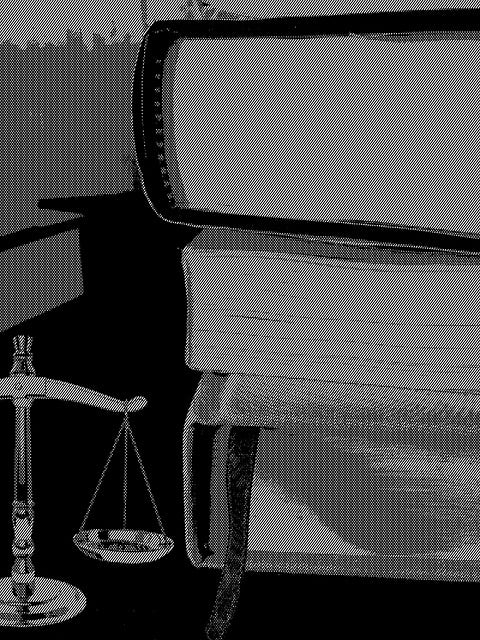Oregon defense cases require meticulous evidence analysis to avoid legal defense mistakes. Communication gaps between clients and attorneys can lead to crucial evidence being missed. Missed or ignored case deadlines may result in waiving rights and missing opportunities to challenge evidence. Integrating expert testimony strengthens cases, but selecting experts with effective communication skills is key. Inadequate preparation due to time and resource constraints often causes legal defense mistakes, requiring efficient navigation of complex court proceedings.
In Oregon, navigating complex defense strategies is paramount to achieving just outcomes. However, a multitude of pitfalls can hamper even the best-prepared attorneys. This article delves into five common yet critical errors often made in Oregon defense cases: Misunderstanding evidence, ineffective communication, missing legal deadlines, overlooking expert testimony, and inadequate preparation. By understanding these mistakes, legal professionals can enhance their strategies and fortify their client’s defenses.
- Misunderstanding Evidence: The Perils of Incomplete Analysis
- Ineffective Communication: Barring Solid Client-Attorney Relationship
- Ignoring Legal Deadlines: Consequences for Defense Strategy
- Overlooking Expert Testimony: Strengthening Your Case
- Lack of Preparedness: Navigating Court with Limited Resources
Misunderstanding Evidence: The Perils of Incomplete Analysis

In Oregon defense cases, one of the most critical yet easily overlooked aspects is the thorough analysis and understanding of evidence. Law enforcement and prosecutors often present a seemingly ironclad case, but a close examination reveals that many pieces may be missing or misinterpreted. The perils of incomplete analysis lie in misinterpreting or overlooking crucial evidence that could change the trajectory of a case.
Legal defense mistakes often stem from a superficial understanding of the facts. Defense attorneys must delve into every detail, scrutinize each piece of evidence, and consider alternative explanations. For instance, physical evidence might seem damning at face value, but an incomplete analysis could fail to account for possible alterations or contamination. By thoroughly examining and contextualizing all evidence, defense attorneys can build a robust strategy that protects their client’s rights and presents the most compelling case.
Ineffective Communication: Barring Solid Client-Attorney Relationship

In the pursuit of a robust legal defense, one of the most significant pitfalls to avoid is ineffective communication, which can severely hamper the client-attorney relationship. A solid bond between these two entities is pivotal for a successful outcome in any case, particularly in Oregon’s complex legal landscape. When clients feel heard and understood by their attorneys, they are more likely to provide crucial information that could be essential for building a strong defense strategy.
The lack of open communication often results in misunderstandings, missteps, and even potential legal errors. Clients might hold back sensitive details due to fear or mistrust, while attorneys may fail to probe adequately, leaving gaps in their case knowledge. This can lead to critical evidence being overlooked or misconstrued, ultimately affecting the overall defense. Therefore, lawyers must foster an environment of trust and transparency, encouraging clients to share all relevant information for a comprehensive and effective legal defense strategy.
Ignoring Legal Deadlines: Consequences for Defense Strategy

In the high-stakes world of Oregon defense cases, ignoring legal deadlines can be a costly mistake for any legal team. These deadlines are crucial checkpoints that shape the trajectory of a case and impact strategic decisions. When they’re overlooked or mishandled, it can lead to severe consequences, potentially derailing the entire defense strategy. Each phase of a trial has its own timeline—from initial filing periods to pretrial motions and trial dates—and these timelines aren’t set lightly. They ensure fairness, order, and efficiency in the judicial process.
Failing to adhere to these deadlines may result in waiving important rights or losing key opportunities to challenge evidence or testimony. It could mean missing crucial discovery deadlines, which can hinder access to critical information needed for a robust defense. Moreover, it increases the risk of procedural errors, such as case continuances, that delay the matter and strain resources. Legal professionals must remain vigilant, carefully managing their caseloads and prioritizing deadline management to ensure optimal outcomes for their clients in Oregon’s legal system.
Overlooking Expert Testimony: Strengthening Your Case

In Oregon defense cases, one of the most critical aspects often overlooked is the integration of expert testimony. Legal defense mistakes can be costly, and a significant blunder is assuming that all facts are self-explanatory. The court relies on experts to provide insights into complex matters, whether it’s medical, scientific, or technical. By presenting well-vetted expert witnesses, defendants can strengthen their case and offer a more nuanced understanding of the evidence.
When preparing for trial, defense attorneys should meticulously select experts who are not only qualified but also able to communicate their findings effectively. Expert testimony adds credibility and depth to the defense strategy. It helps the jury comprehend intricate details that might otherwise be dismissed as technical jargon. Effective use of expert witnesses can sway the court’s decision and ultimately improve the chances of a favorable outcome in Oregon defense cases.
Lack of Preparedness: Navigating Court with Limited Resources

Many Oregon defense cases face challenges due to a critical lack of preparedness, often stemming from limited resources and time constraints. Legal professionals must be adept at navigating court proceedings efficiently, especially when dealing with complex criminal cases. This issue is heightened in regions like Oregon, where the legal landscape can be intricate, demanding a thorough understanding of local laws and procedures.
Lawyers and defendants alike should recognize that inadequate preparation can lead to significant legal defense mistakes, potentially undermining the case’s outcome. To counter this, it’s crucial to allocate sufficient time for gathering evidence, interviewing witnesses, and crafting a robust legal strategy. Proactive measures such as thorough case research, seeking expert opinions, and utilizing available resources can help bridge the gap between limited means and a comprehensive defense.














